Nutrition during pregnancy and breastfeeding
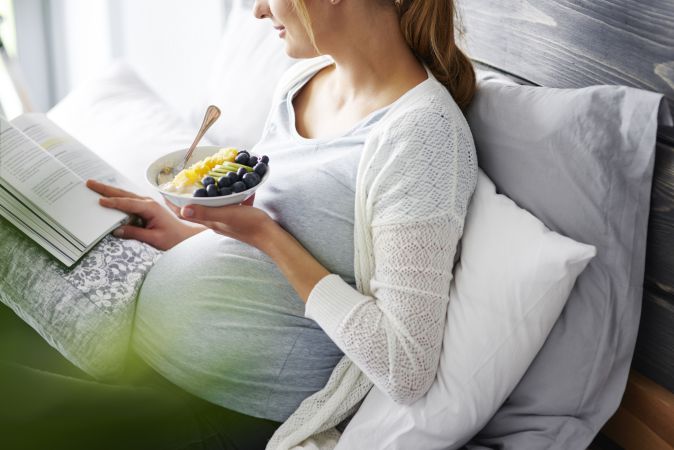
During the nine months of pregnancy, the most important thing for the future mum is looking after her well-being. A healthy diet is the first step to looking after yourself and the life developing inside of you!
I'd like to begin with the weight gain issue – this is a topic that bothers future mums, especially at the beginning of the amazing motherhood adventure.
A pregnant woman doesn't necessarily have to gain 10kg or, like our grandmothers used to say, gain the proverbial kilogram a month. Some women may gain a few extra kilograms, and some may gain less.
What's important is that different women gain different amounts of weight during pregnancy, and pregnancies differ from each other, so never compare yourself with your friends, loved ones and people you know, or even with other pregnancies you've gone through.
In general, the above matter looks like this:
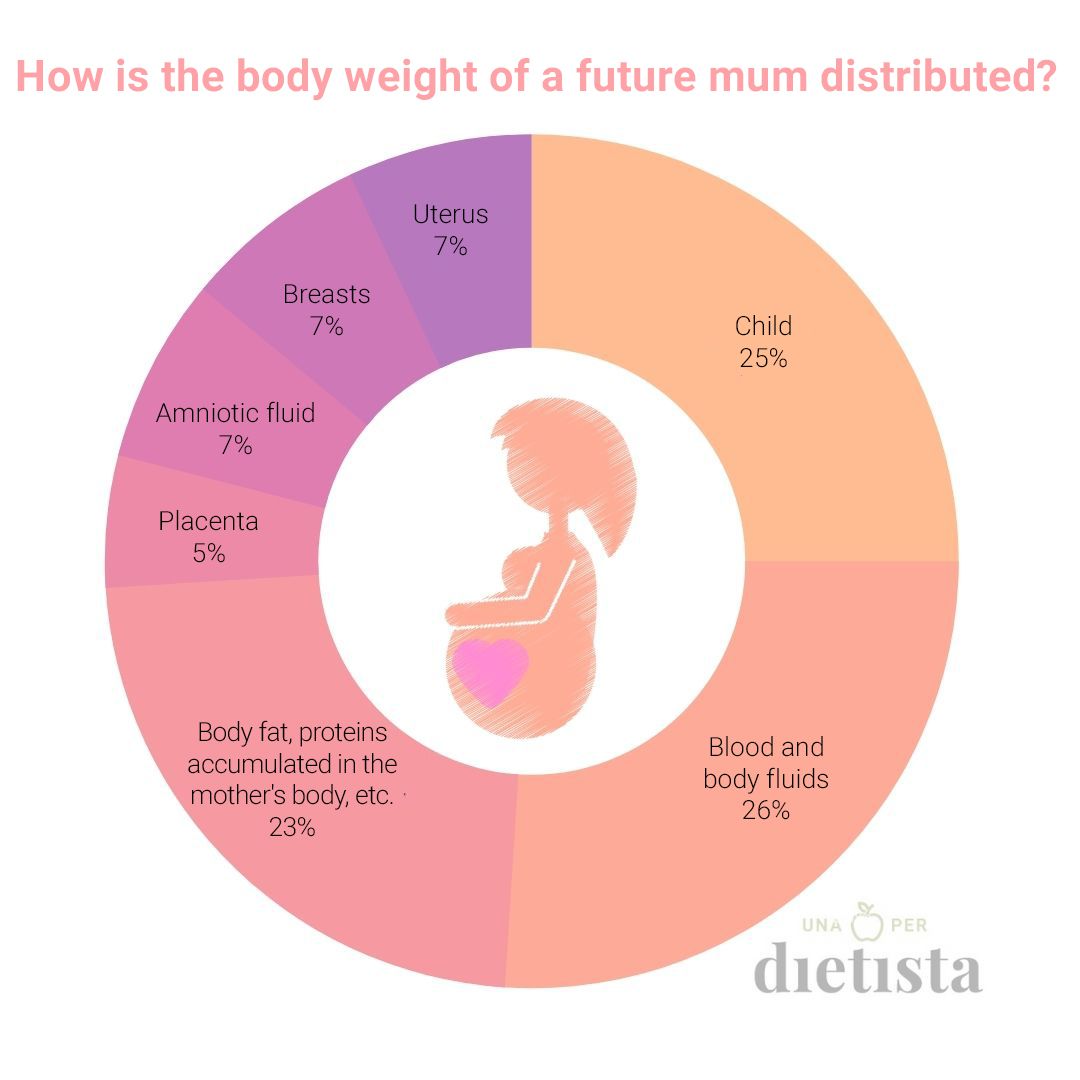
Weight gain depends on your weight before the pregnancy, the pharmacological therapies used to get pregnant, physiological hormonal changes, chronic stress related to your job, unplanned pregnancy, the current situation, i.e. quarantine or looking after family, as well as nutrition and physical activity.
Guidelines for a normal pregnancy:
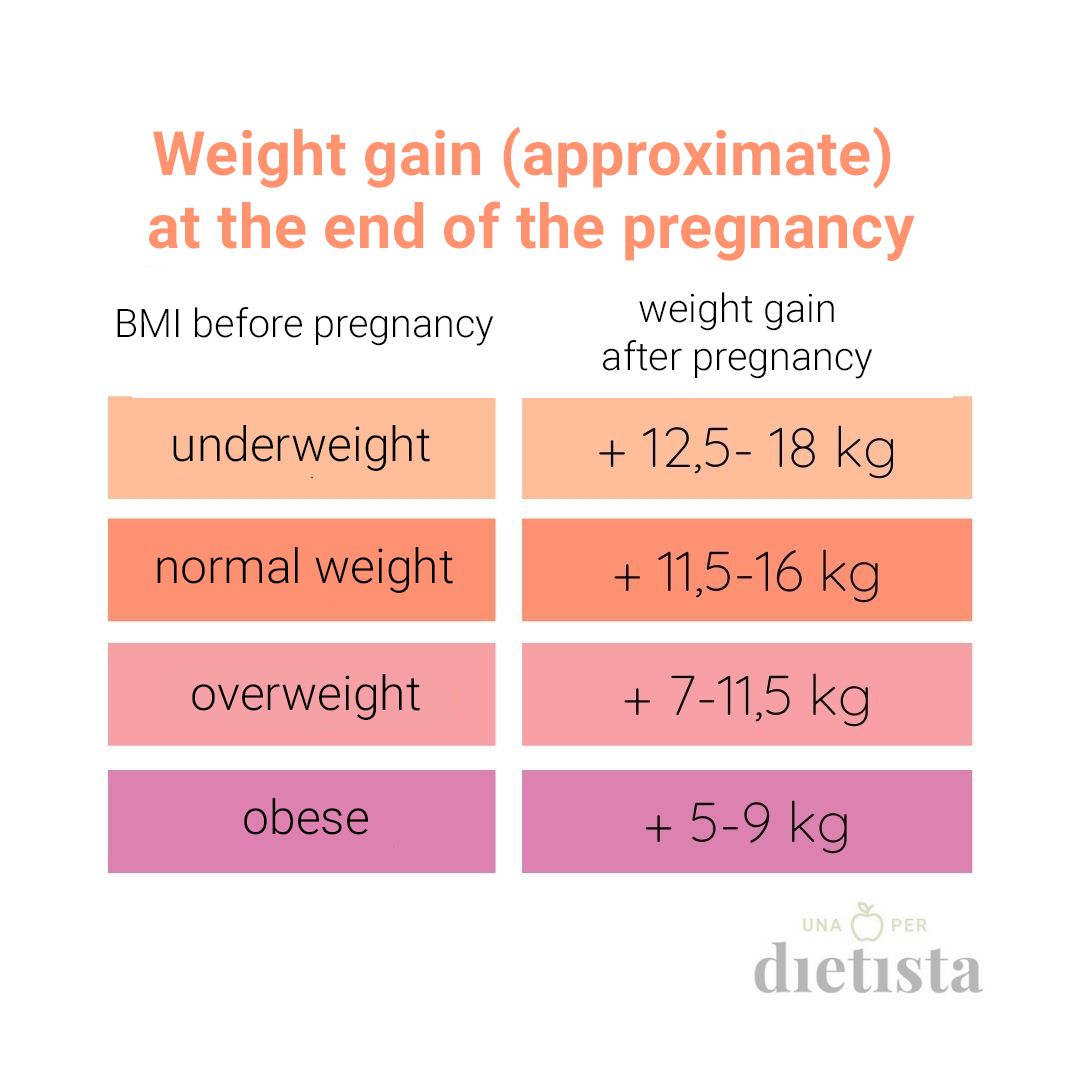
First trimester
In the first trimester, your diet may not always be well balanced. This is due to problems such as nausea and vomiting, which may significantly restrict your daily diet. The first months are a period of adaptation, and it's good to devote this time to understanding the changes that are happening.
To be able to deal with problems that are typical in the first months of pregnancy, you should avoid going long periods without food. Learn to spread your meals out throughout the day correctly, taking into account several extra snacks; avoid hunger – your body shouldn't remain in a fasting state for several hours. Snacks that best prevent nausea are almonds, nuts, bread sticks, crackers, toast, etc. If your nausea occurs when you first wake up, it's good to keep something like rusks in your bedside table and to have one before you get out of bed.
Second trimester
In the second trimester, in most cases, your calorie requirements will increase, and your food preferences will return. This is when you can learn about good nutrition and create a good food programme for your family.
The diet of a future mum should include many types of products. Here are the most important ones:
- Sources of complex carbohydrates. In every meal, you should have the right amount of complex carbohydrates, prioritising wholegrain wheat products (different types of rice, wholegrain or multi-grain pasta, spelt, barley, buckwheat, quinoa and rye). You should limit processed products, such as crackers and rusks, and you should consume potatoes only several times a week.
- Sources of protein that allow you to meet your increased needs from the fourth month of the pregnancy. The most recommended source of protein is legumes (chickpeas, beans, lentils, broad beans, peas and soy beans), fish (especially sea fish such as mackerel, sardines, anchovies and salmon), eggs and fresh cheeses. Full-cream milk and yoghurt are also a great solution and can be eaten several times a day – for breakfast or as a snack. You should limit how often you eat red meat, cold cuts and ripened cheeses.
- Source of omega-3 fatty acids. DHA is a nutrient that's crucial for the development of the baby's cognitive functions. These valuable fats are found in fatty fish, walnuts and linseeds.
- Folic acid. This is a vitamin that's important throughout pregnancy for the well-being of both mum and baby (in reality, dietary supplements containing this vitamin are prescribed up to the twelfth week of pregnancy). It can be found, for example, in fruit (strawberries, raspberries, oranges and bananas), and especially in leafy greens (spinach, cabbage, kale, broccoli, lettuce, etc.).
- Iron to combat anaemia. This very important micro-element can be found in well-cooked, lean red meat, in liver, in whole grains and in pseudocereals (amaranth, buckwheat and quinoa), in nuts (almonds, cashews), in dried fruit (apricots, the absorption of which improves when they're soaked in water) and in legume seeds (especially lentils and chickpeas). When it comes to iron, don't forget dried aromatic herbs and spices. Vitamin C increases absorption, so it's always good to combine foods rich in iron with a source of this vitamin, e.g. lemon juice or broccoli on the side.
- Iodine for proper thyroid function of both the mother and the baby. Iodine is found in fatty fish, seafood, iodized salt, cheese and hazelnuts.
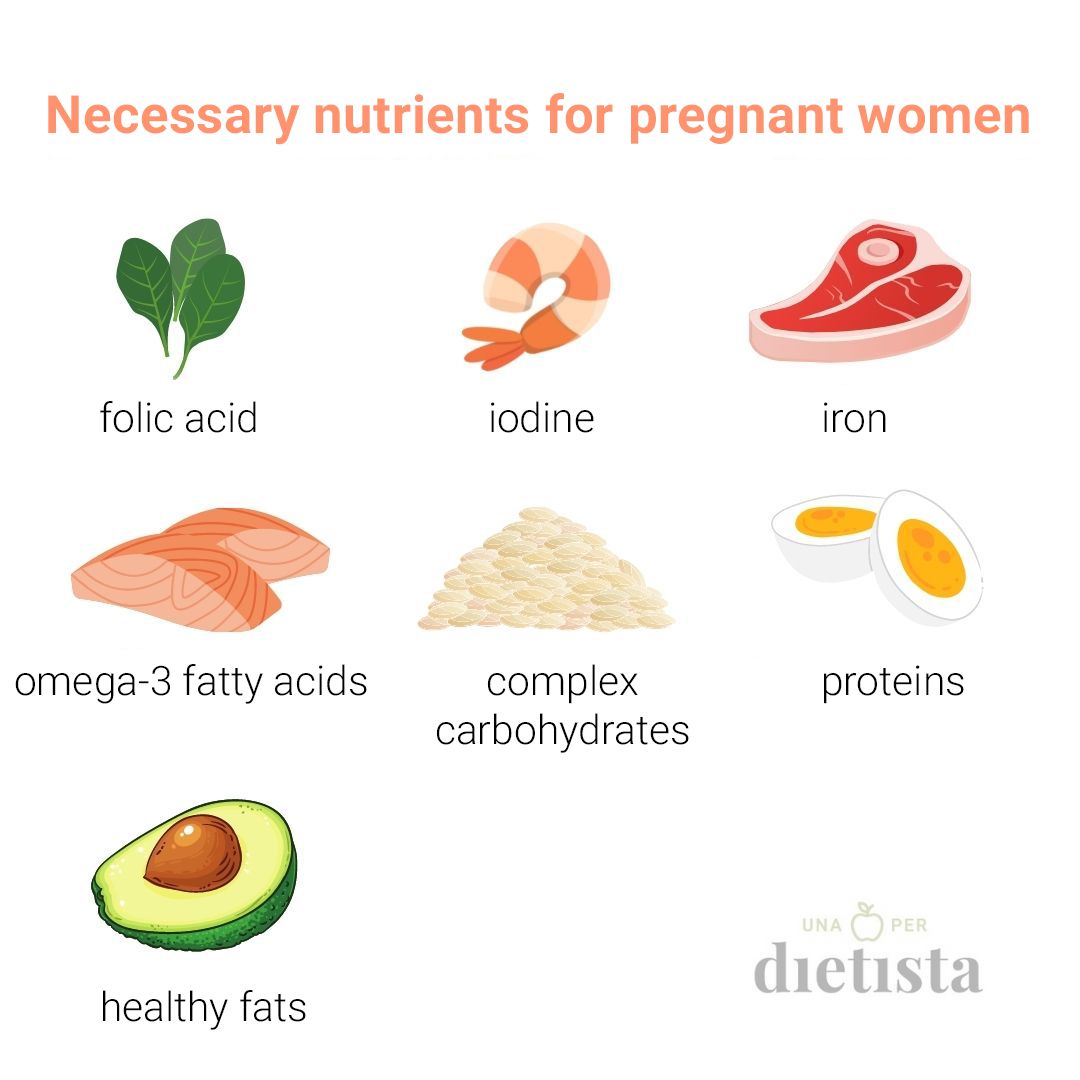
It's usually good to make sure that all meals are complete and prepared in accordance with healthy eating rules. They should include:
- a source of carbohydrates – wholegrain wheat, and ideally wholegrain pasta or potatoes,
- a source of protein – fish, meat, legumes, eggs and cheeses,
- nutrient-dense sources of vegetables, and in particular whatever is in season and contains fibre, which should be seasoned with the right amount of olive oil of the highest quality.
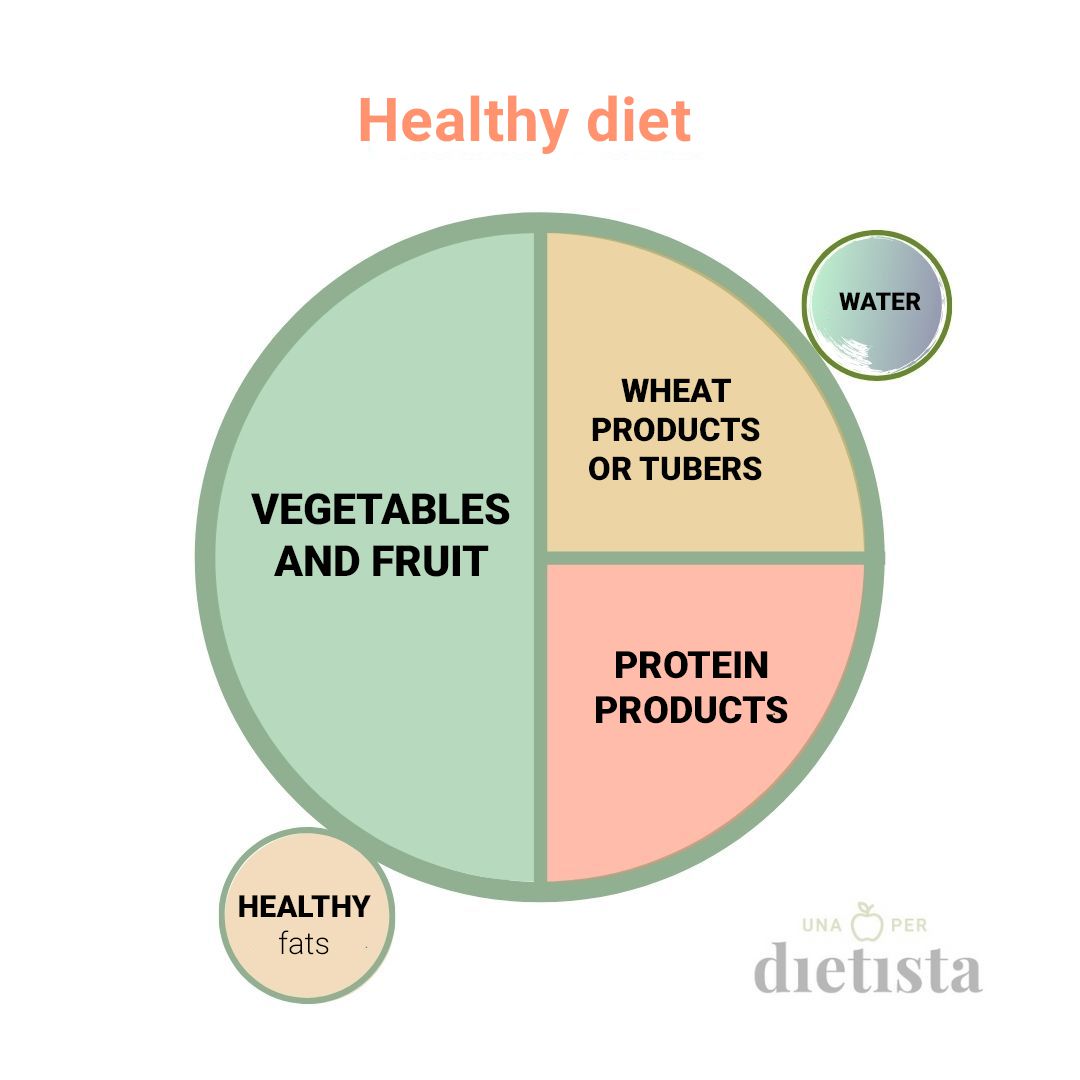
Third trimester
All of this also applies to the third trimester, which is when the birth is approaching, except that in these months, you may feel your child's weight sitting on and squashing your stomach and causing new discomfort: gastritis, acid reflux, digestive problems, or premature passing of stool. To help with these issues, it's good to introduce more variety into your daily diet. In fact, it's enough to limit the volume of individual meals and add a few extra snacks in the form of fresh or dried fruit, yoghurt, seasonal vegetables and bread.
Even during breastfeeding, the mother's diet plays an important role in providing the baby with the appropriate nutrients. Of course, there is no food that stimulates milk production, but it's important to meet your highly increased nutrient needs. That's why the diet should be varied and rich in all nutrients: complex carbohydrates from wholegrain products, plant- and animal-based protein, healthy fats (e.g. olive oil of the highest quality), dried fruit, vitamins and fibre from fruit and vegetables. Really, there are no foods that are completely prohibited during pregnancy. In past times, products such as garlic, onion, hot spices, cabbage, broccoli, legumes and dairy were completely banned in mum's daily diet, because it was believed that there is a relationship between their consumption and colic in babies. However, this isn't true. If you've always included these foods in your diet, you can – and actually should – continue to do so without worrying that you'll harm your child or that your milk won't be as good. The best thing to do is observe your little one and see whether they do indeed suffer from one or more eating disorders. The only thing you should avoid is alcohol, and you should limit coffee to a maximum of two cups a day.
If you have any doubts during this very sensitive period of your life, it's always good to ask a nutritionist instead of coming up with a diet on your own.
I hope that these nine months and time spend waiting for your little one to arrive are magical!
Francesca Oggionni
Dietician
